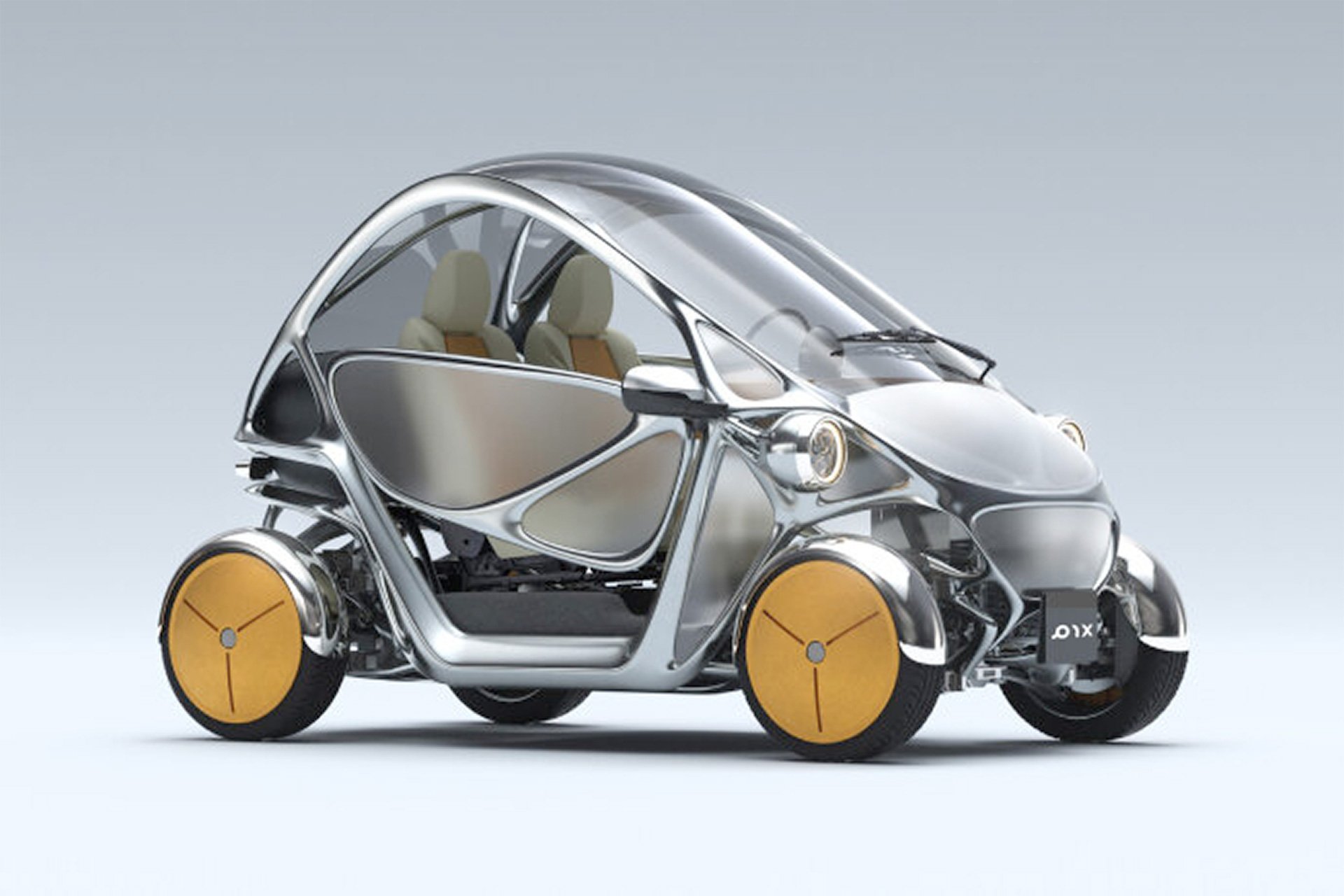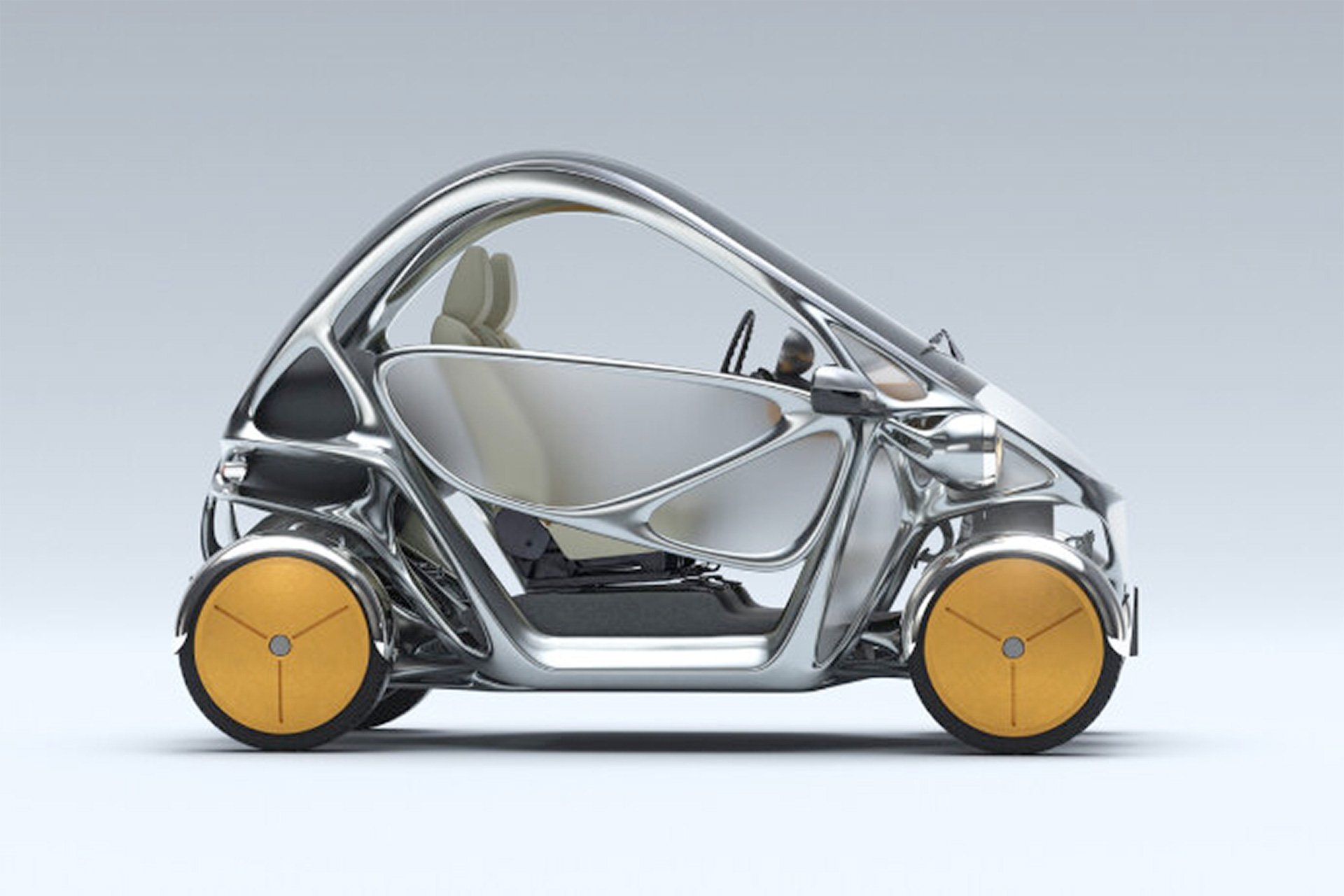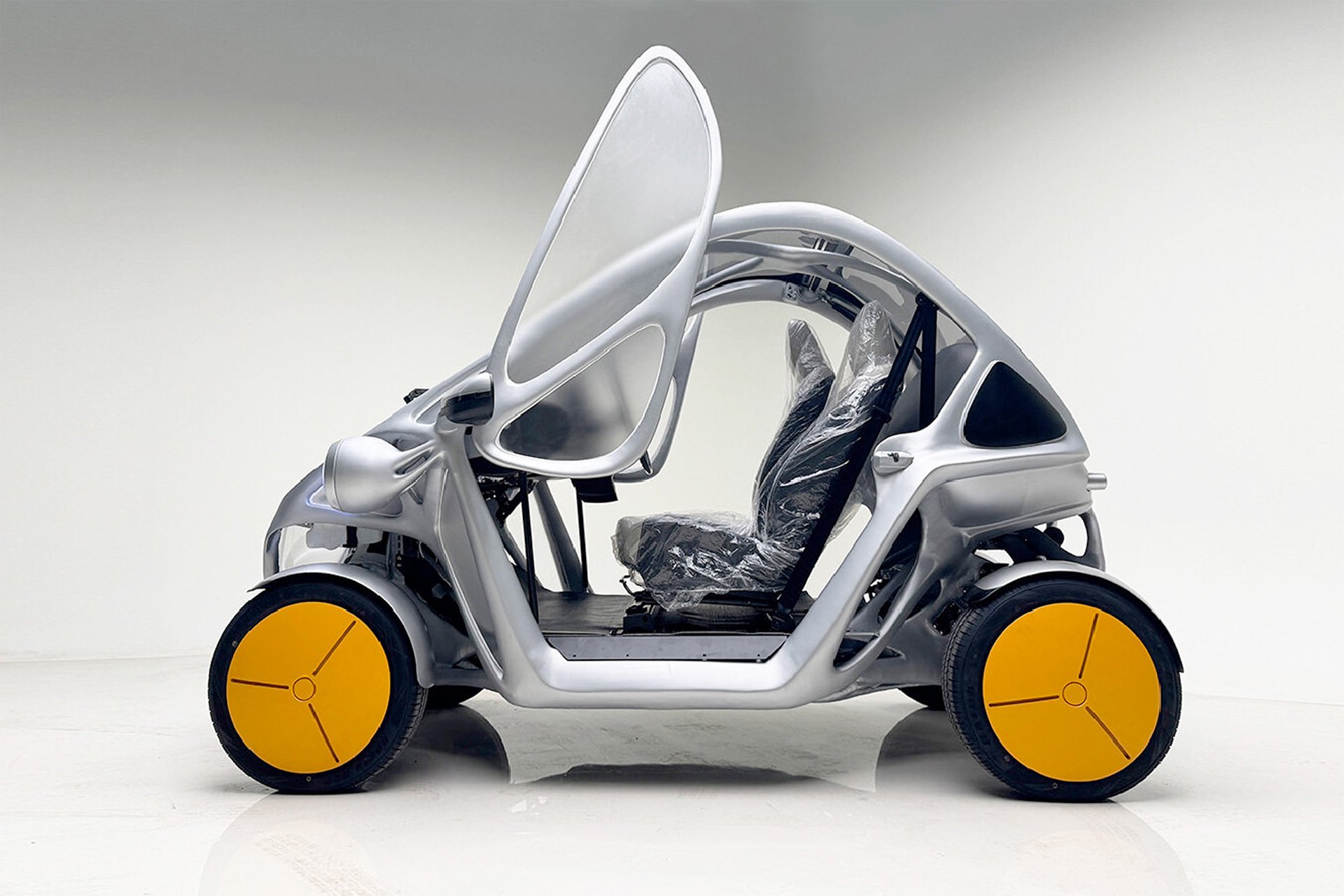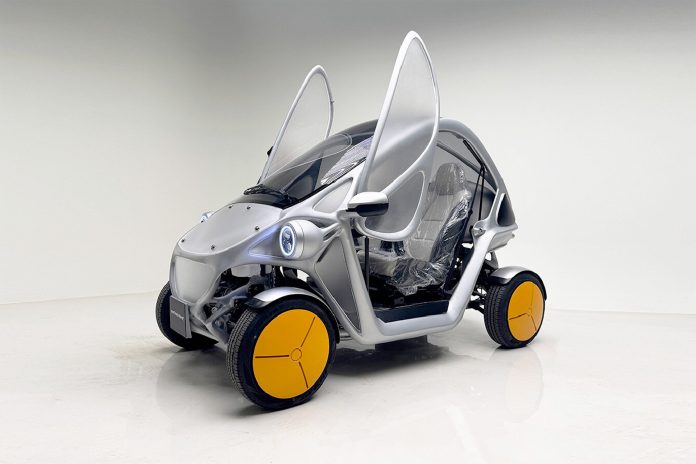PIX Moving Team has unveiled the Robo-EV, a 3D-printed micro metal car designed with a range of unique features, including AI mood detection and a flexible, modular build. This compact, open-air vehicle aims to introduce a new level of personalization to urban electric cars, making use of advanced manufacturing techniques and adaptable designs that allow owners to repurpose the car for various needs.
AI-powered mood detection for personalized support
One of the Robo-EV’s standout features is its AI-driven personal assistant, designed to detect and respond to the driver’s mood. Powered by a large language model, this system allows the car to gauge the driver’s tone and emotions, providing conversational support when needed. According to the PIX Moving Team, the car’s voice assistant can engage with the driver on an emotional level, adapting its interactions based on the driver’s mood. Though technical details about the system are limited, PIX Moving’s team confirmed that the AI has been trained to offer helpful guidance, making drives potentially more pleasant and supportive on challenging days.
Modular design with multiple configurations
Robo-EV’s modular design allows for a high degree of customization, letting owners tailor the vehicle to fit their unique requirements. The car can be reconfigured to serve as a personal commuter, a cargo carrier, or even a rideshare vehicle. This flexibility, combined with the car’s small footprint, makes it an attractive option for urban dwellers needing a versatile mode of transport. PIX Moving suggests that with slight modifications, Robo-EV could even function in public transportation settings.
In addition to the vehicle’s functional versatility, Robo-EV offers a distinct open-air experience. The car’s skeletal design is made entirely of 3D-printed metal parts, giving it a minimalist, futuristic look. This structure enables natural airflow, providing a fresh, airy environment for passengers. It’s a design choice that benefits drivers on warm days while still maintaining a sturdy frame.

Real-time 3D printing for single-piece construction
The Robo-EV stands out in its manufacturing process as well. The car is created in a single print using advanced 3D printing technology, eliminating the need for multiple parts to be assembled afterward. PIX Moving’s approach is intended to “reduce potential failure points and enhance its structural integrity.” By creating the vehicle as a single cohesive piece, the company aims to minimize assembly requirements and potentially increase durability.
Furthermore, PIX Moving has incorporated real-time manufacturing techniques, which eliminate the need for traditional molds. This change allows for a more streamlined production process, potentially lowering costs and offering more customization options. The car’s suspension system is built with basalt composite materials, which contribute to the Robo-EV’s lightweight yet durable frame.

Efficient performance features
The Robo-EV is also designed with several energy-saving features. For example, the car includes a regenerative braking system that recharges the battery as the driver decelerates, helping to extend the vehicle’s range. The regenerative system works alongside composite leaf springs, which help reduce the car’s overall weight while enhancing its stability and reducing carbon emissions. These materials also resist corrosion, improving the car’s durability and performance over time.
Design inspired by fluid architecture
The Robo-EV’s appearance is marked by clean, fluid lines, particularly in the design of the doors, which draw inspiration from fluid architecture. The vehicle also has a dome-like roof structure, accommodating drivers and passengers of various heights. Even smaller details, such as the wheel arches, are made from 3D-printed metal, adding to the cohesive look and feel of the car.
Future potential and road testing
PIX Moving tested the Robo-EV on public roads on November 4, 2024, though results of these tests have not yet been disclosed. As a prototype, the Robo-EV may still undergo adjustments based on testing feedback, but it represents PIX Moving’s commitment to exploring innovative approaches in electric vehicle design and urban mobility.

With features such as AI mood detection, real-time 3D-printed construction, and a modular framework, the Robo-EV is an intriguing option for city dwellers looking for a customizable, compact electric car. Further details, particularly around its public availability and potential price point, are yet to be released, but the Robo-EV could pave the way for future AI-integrated micro vehicles in urban settings.
Source: PIX Moving



